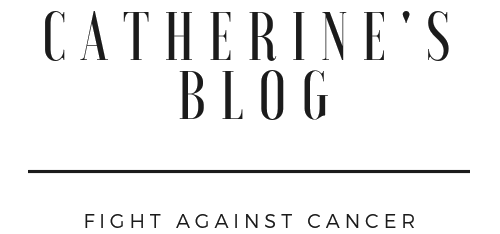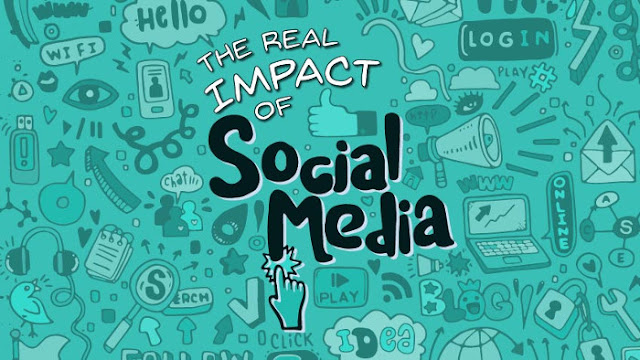This morning, I came across an article in the Canadian press whose title immediately appealed to me: when tweeting his illness is controversial.... It tells the controversy around a young 44-year-old American woman, Lisa Bonchek Adams, mother of three young children, and suffering from breast cancer for 7 years, which unfortunately metastasized in 2012. This woman has a blog since 2009 and tweets a lot about his account which is also very followed.
She tells about her cancer, her life, her children, her joys, her sorrows and more recently, her inclusion in a clinical trial in which she places all her hopes. She writes to share, inform and change the image of a disease whose pink too often obscures reality. So far nothing abnormal, so where does this outcry come from our friends across the Atlantic for which social media are yet an institution?
The controversy arose from journalist Emma Keller, who attacks Lisa's way of doing so, comparing her to reality TV in an article about the Guardian. I have not been able to read this column, which has since been withdrawn by the newspaper's editors, but its title "Forget funeral selfies." What are the ethics of tweeting a terminal illness? "Is cold in the back. Things are posed, the young woman is terminally ill, and it would be better if she were silent and died in silence!
But while digging here and there, I found Emma Keller's blog, diagnosed with breast cancer in situ in 2012, could not find better at the time than to tell about her double mastectomy and her reconstruction. on his site in a ticket relayed by the Guardian. If I understand correctly, for the columnist, it is "ethical" to blog on a "small" cancer but not on a metastatic cancer!
This sad story made me think of the case of Marie Dominique Arrhigi, aka MDA, journalist at Liberation who told her cancer until the end on his blog, K, crab stories . Another country, other morals, Marie Dominique was unanimously hailed for his courage and a book from his blog was published on his death.
But the case does not stop there, since after the extremely virulent reactions to this first article, Bill Keller, Emma's husband, publishes a few days later a new opus in the New York Times . Bill tries to gain height and not content to also denounce our blogger for his unbearable exhibitionism, he wonders about the end of life and especially the cost of what for him, is similar to the relentless therapeutic . Clearly, he condemns Lisa, advising him, like his father-in-law, who died of cancer, to agree to stop treatment and calmly go to other places. We are witness to the death sentence of the young woman, without prior knowledge of her case, and her guilt at the exorbitant costs of the clinical trial she has entered. I remind you that in the USA, the expenses of care are mainly supported by the private insurance of the patients!
So, what about all that? Two separate topics are discussed in this sad case: media exposure and end of life.
Regarding the first, if Lisa wants to write to the world about her cancer, her story, to inform or for any other reason that belongs to him, how does this couple of journalists interfere? In the name of what to pin this woman who fights with dignity? Why condemn her without appeal and ask her to keep quiet? Cancer is scary, it disturbs and obviously the right to talk about it is debate! It may be better to show only the pink face of the iceberg and its survivors who are so much celebrated in the United States. But the huge interest of the media and the internet is that everyone is free to read or follow whoever he wants. By putting Lisa in the spotlight, the Keller have made an unexpected advertising for proof, his twitter account that went from 7800 followers to 13000 in a few days. Was it the goal? I do not think so. ? It seems to me that the personal story with the disease of the donor couple has conditioned the content of their writings.
But beyond the case of social media and media exposure that some choose to have, these journalists pose a fundamental problem. Should we question the fact that Lisa continues to hope? Do we have the right to decide for her whether she should continue to fight or give up? In a country like ours, in which medical care is supported by the community, the issue is likely to arise soon. What price is society willing to pay for a few months, extra years of life? This is already the case in England or Canada where a drug is considered in terms of cost-effectiveness. In France, the subject is not on the agenda, but the exponential prices of innovation are likely to plunge us into this ethical debate. The citizens, sick or well-off, are all concerned and health democracy here makes sense. Anyway, I was terribly embarrassed by the personalization of the discussion. One can not calmly approach a subject so complicated starting from the particular case of someone from whom I also repeat it, we do not know the medical file. It is a debate of public order in the same way as euthanasia, which can not in any case take its source in a painful personal story! What do you think? It is a debate of public order in the same way as euthanasia, which can not in any case take its source in a painful personal story! What do you think? It is a debate of public order in the same way as euthanasia, which can not in any case take its source in a painful personal story! What do you think?
On the site of cancer contribution, a large survey on the subject of access to innovation in cancer will be posted soon. The opportunity to use the Internet intelligently to discuss serenely a topic that affects us all. I can not really commit to taking a tour and thus bring your stone to the building!














0 comments:
Post a Comment